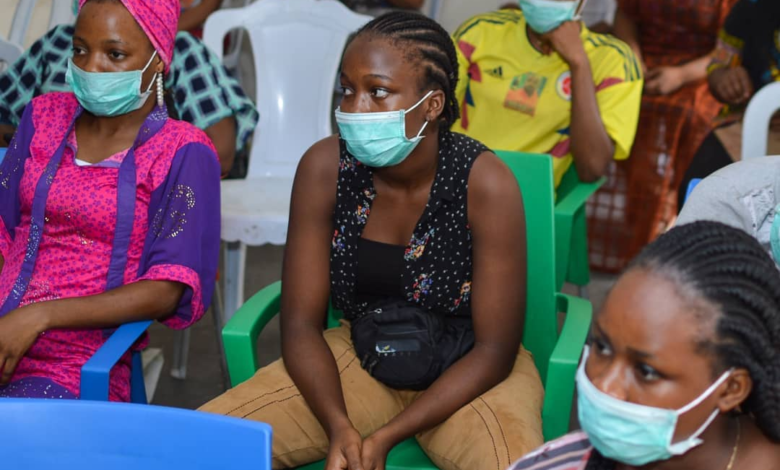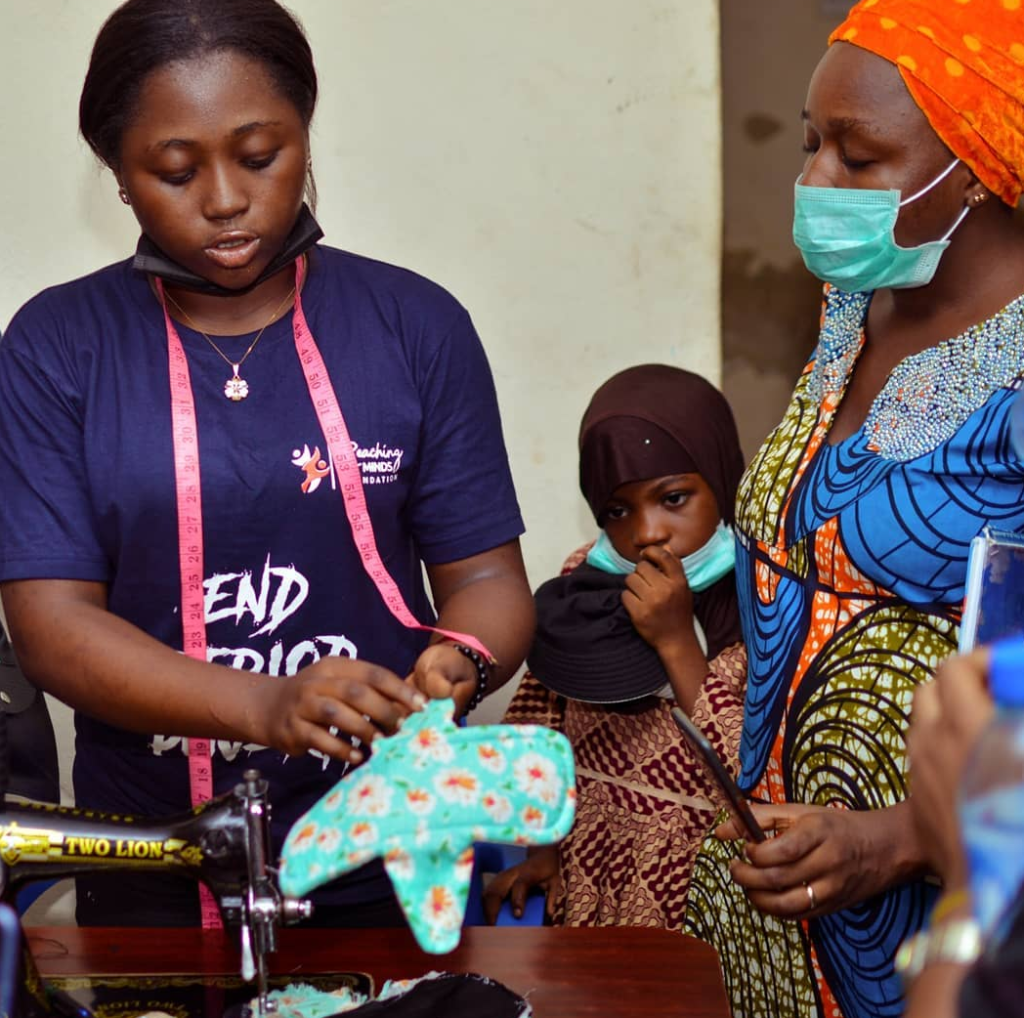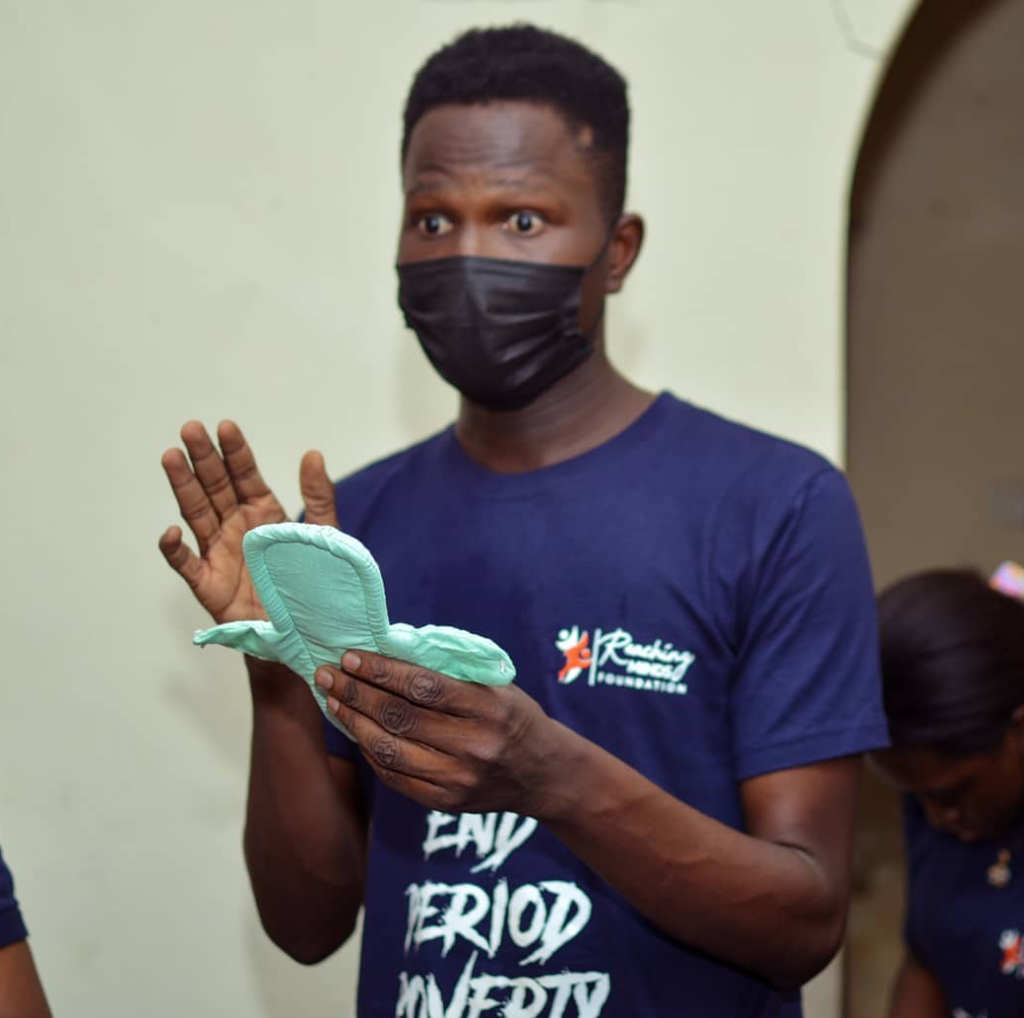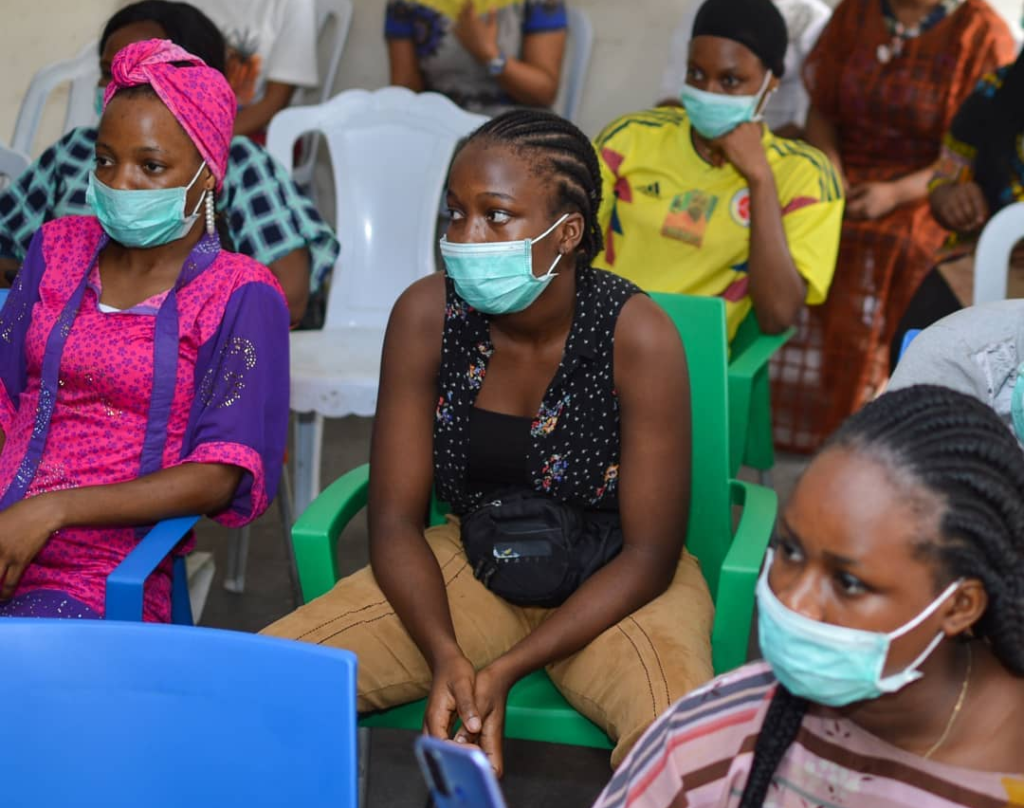
Chioma Arinze*, 20, would no longer have to use rags as sanitary pads during her monthly menstrual periods. This is because a youth-driven initiative is helping many displaced women in Ibeju-Lekki Local Government Area (LGA) of Lagos, Southwest Nigeria, to end period poverty.
Chioma is one of those at the state’s centre for rehabilitation and reintegration of migrants and IDPs in the premises of the Lagos State Relief and Resettlement Camp in Ibeju-Lekki axis of the state. She is one of the many returnees who arrived from Libya early 2021.
Most of the returnees had near-death experiences in their search for better living conditions in a strange land and blamed some travel agents for their woes. While this has always been the story, many embark on this grave journey yearly for greener pastures.
“I have been faced with hunger since my return. Since getting food was difficult for me, money for sanitary products and access to them was hell too. That’s how I got rags and started using them. I put the rags in place of pads,” she said.

Chioma’s story, however, changed in February of the same year when she learned how to make reusable pads from Reaching Minds Foundation. “Prior to then, I didn’t know that it’s possible for me to make my pads and reuse them. So, after learning this process, I started making my pads by myself and also started giving out to people in need too.”
The initiative
Oyeyemi Abass was a 19-year-old 300 level student of the Faculty of Law at the Obafemi Awolowo University (OAU), Ile-Ife, Southwest Osun State when he started Reaching Minds Foundation in 2017.
Speaking on what inspired him, he told HumAngle that he loves equal representation and gender equality. “I understand the place of women in society and the challenge most of them face monthly during menstruation. I shared the idea with some of my colleagues in school and we committed ourselves to reaching out…”

“We started Reaching Minds as a platform that tackles societal issues seen as minor in society. We understand women in IDP camps and those in prisons are actually facing menstrual poverty but the society is unconcerned. This was what took us to the IDP camp in 2021 and we are glad to have influenced lives,” Abass said.
The initiative is producing and distributing the ‘end period poverty’ reusable pads to women in IDPs and remote villages in their region. They also organise workshops on how to make the reusable pads.
“In the next few years, we want to empower every woman to the extent that they can produce their pads and they can also help other women to make their pads. We want to convert menstrual poverty to menstrual empowerment,” Abass told HumAngle.
Salawu Faizah, a final year law student of Obafemi Awolowo University (OAU) who doubles as the foundation’s President said “we do not intend to significantly reduce period poverty, we intend to put an end to the problem. And to achieve this, we have an aim of reaching out to 10,000 women and girls in Africa over the period of five years and, hopefully in 10 years, we would have successfully combated this problem.”
One of the major challenges the team faces is funding. HumAngle learnt that the initiative is being funded by allowances the students get from their parents and people who appreciate their activities.
Asked if there are any side effects or reactions after using the pads, Aro Moyinoluwa, Lead Producer, End Period Poverty Reusable Pads said “absolutely not! The pads are made from breathable cotton fabric which is most suitable. From our research, these fabrics absorb well. It must be thoroughly rinsed and washed and dried directly under sunlight. The reusable pads are durable for six months.”
Period burden
The average woman menstruates from age 13 until age 51, about once a month. A 2019 data from the International Federation for Gynaecology and Obstetrics revealed that more than 500 million women and young girls in the world experience period poverty every month.
HumAngle understands that each of the periods lasts from three to seven days. The prices of sanitary pads in Nigeria have moved from ₦350-₦400 in 2019 to ₦700-₦950 in 2021. With almost 83 million Nigerians living below the poverty line, displaced women and girls would rather use their money for food and sustenance, rather than sanitary products.
In this case, many resort to the use of cloth strips or foams which could result in discomfort and even health issues that include urinary tract infections caused by poor hygiene.
In Oct. 2018, many Nigerians stormed Twitter, urging the federal government to scrap the tax on sanitary pads to make them affordable for women and young girls. They submitted a petition titled “An appeal to end all the taxes on menstrual hygiene products (including sanitary pads) and pass the menstrual hygiene bill” to the National Assembly.

“Access to sanitary pads is a basic human right and women should feel more safe and respected when they have their menstrual cycle. Government must take necessary actions to ensure that this ends. They shared free condoms when sensitising on HIV, they should make sanitary pads free and cheap,” said Abass.
Support Our Journalism
There are millions of ordinary people affected by conflict in Africa whose stories are missing in the mainstream media. HumAngle is determined to tell those challenging and under-reported stories, hoping that the people impacted by these conflicts will find the safety and security they deserve.
To ensure that we continue to provide public service coverage, we have a small favour to ask you. We want you to be part of our journalistic endeavour by contributing a token to us.
Your donation will further promote a robust, free, and independent media.
Donate HereStay Closer To The Stories That Matter




